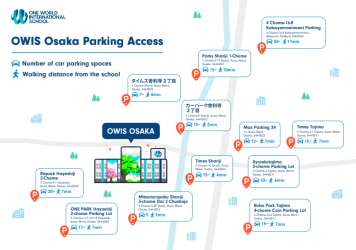International schools, offer bilingual education so parents can provide broader opportunities for their children. Bilingual education, as an approach that nurtures multilingualism, has gained recognition for its numerous benefits. In this article, we will explore the world of bilingual education, delving into its advantages, as well as the challenges that come with this educational approach.
What Does It Mean to Be Truly Bilingual?
When someone is truly bilingual, it means they have a true mastery of two languages. They should have a high level of competency in both languages and feel comfortable using both. Switching from one language to another should be easy, and they should also be well-versed in slang and local nuances. Most people still feel more comfortable in their native tongue, the language spoken at home. This is perfectly normal, and anyone who grows up speaking two languages is indeed bilingual.
There are many benefits of bilingual education. The multicultural atmosphere of international schools plus language education, allows each child to experience other cultures and achieve bilingualism.
What Are the Benefits of Bilingual Education?

Many seek bilingual education in Japan because it opens many doors at school, home and work. Those who are bilingual tend to be able to concentrate, solve problems, multitask and focus better. Here are just a few of the many additional benefits of bilingual education:
1. The Ability to Build Businesses that Have International Reach
As with building a business anywhere, it’s important to think globally. The more languages leaders in the company know, the greater the reach of that company. Even if a child has no plans to own a business, they become more employable when they are bilingual. Adding a bilingual status to their resume will increase their chances of being hired and career advancement.
2. Adaptability When Interacting With Foreigners
Tourism is a driving force in Japan, and many businesses deal with foreigners every day. When a person can interact with foreigners by speaking the same language, it enriches life. It is easier to learn and understand the needs of tourists if you can clearly and directly communicate.
In business, it’s essential to be able to make deals and understand clients and contacts across the globe.
3. Being Confident and Capable When Traveling Abroad
It’s a rewarding experience to visit other places in the world. Those who are bilingual can feel confident about traveling and making their way in other countries. There are so many amazing sights to see and people to meet. Some people hesitate to travel because they do not know the language. They are missing out, and feeling confident in a foreign country makes travel an all-around better experience.
4. Enhanced Cognitive Benefits
5. Economic Advantages
Challenges in Bilingual Education
1. Initial Learning Curve
Regardless of the country, students may experience an initial learning curve as they adapt to learning in a second language. This adjustment period can be challenging, but the long-term benefits outweigh the initial difficulties. The higher the age, the longer the adjustment period. Studies have proven that second language acquisition is best done between 0 and 18 years old, with differences between sound acquisition and grammar understanding. Toddlers learn sound more easily than other groups However, grammar is more effectively developed after 10 years old.
A big difference is made when the second language is also spoken at home, with one parent being fluent. This enhances the speed of acquisition of the language.
2. Resource Intensity
Bilingual schools in Japan can be resource-intensive due to the need for qualified bilingual teachers, specialized language programmes, and diverse learning materials. Creating an immersive bilingual environment requires additional resources for language acquisition support, cultural exchange activities, and maintaining a curriculum that meets both local and international educational standards.
Additionally, bilingual schools often have smaller class sizes. This helps to provide personalized attention, contributing to the overall resource demands.
3. Language Imbalance
In some cases, students may become more proficient in one language over the other, potentially leading to language imbalance. Schools and teachers must be vigilant in ensuring that students achieve balanced proficiency.
The languages spoken at home, the language spoken between friends, as well as the language spoken in the materials, toys, or devices used at home may impact the proficiency of one language.
4. Limited Availability
Not all schools offer bilingual education programmes, limiting access for some students. This lack of availability can be a barrier for those who wish to participate in such programmes.
Limited availability of bilingual schools in Japan can be attributed to various factors. Firstly, there’s a shortage of qualified bilingual educators, making it challenging to establish and sustain such schools. Additionally, there may be a lack of awareness or demand for bilingual education among the local population.
Moreover, the bureaucratic process for accreditation and approval of bilingual schools can be time-consuming and stringent, hindering the establishment of new institutions. Financial constraints and the perception that bilingual education is primarily for expatriates might also limit the growth of bilingual schools. This is because they may not be seen as a priority for some communities.
5. Standardized Testing Challenges
Bilingual students may struggle with standardized testing since many tests are in just one language. Schools and policymakers need to address this to ensure fairness.
Standardized tests often favor a specific language and culture, putting students not fully immersed at a disadvantage. Bilingual students may find it hard to showcase their true abilities if tests don’t consider their background. Navigating two educational systems can create knowledge gaps, hindering performance. More inclusive testing frameworks can help address these challenges.
Changes in the Brain of Bilingual Children and Adults
Methods of Bilingual Education

Immersion programmes
Diving into the world of language and culture through immersion education is like embarking on a vibrant journey! From a young age, students fully immerse themselves in a second language, surrounded by it not only in language classes but throughout their entire learning adventure. This naturalistic approach mirrors how we learn our first language—immersing in a context-rich environment.
This immersive experience not only cultivates language skills but also incorporates cultural understanding. Studies highlight that immersion programmes lead to impressive language proficiency, cognitive perks, and a boost in academic performance. Those who embrace this journey often showcase advanced problem-solving abilities and a keen awareness of cultural diversity. In our interconnected world, immersion education becomes a passport to navigate global opportunities right from Japan!
Transitional bilingual education
Picture it as building a bridge between your child’s native language and the exciting world of English. Starting with familiar instruction helps in grasping academic concepts, making the journey into English more comfortable. It’s especially valuable for those who might find a new language and educational system a bit overwhelming initially.
Research promotes the advantages of transitional bilingual education, citing its effectiveness in fostering academic success for English language learners. It lays a sturdy foundation in the native language, a base for mastering English. Plus, it’s a boost for self-esteem and cultural identity—a key ingredient for overall well-being.
Dual language programmes
Dual language programmes go beyond language lessons, guiding students to proficiency in two languages, often their native and English. This enriching journey supports bilingualism, cultural awareness, and academic success by balancing teaching in both languages and fostering unity among students from diverse language backgrounds.
In Japan, these programmes act as heritage language supporters, by preserving native languages while also equipping students with English proficiency. In turn, this opens doors to diverse careers and establishes a foundation for global citizenship.
Heritage language programmes
Tailored for those with a different family language, heritage programmes keep languages alive amid assimilation risks. These programmes ensure language proficiency, build cultural identity and bridge generational gaps.
In Japan, heritage language programmes are a real asset. They offer cognitive benefits, secure a vibrant language and culture conservation for generations to come.
Two-way immersion (or dual immersion)
Research shows kids in dual immersion programmes excel academically.In Japan, these programmes shape bilingual, globally-minded kids, where curiosity knows no language boundaries.
Bilingual Education in International Schools
For parents navigating the educational landscape in Japan, bilingual education in international schools shines as a beacon of excellence. These schools, designed for diverse, globalized communities, offer a well-rounded education in two or more languages, nurturing multilingualism, cultural understanding, and academic brilliance.
Living in Japan, where globalization is a reality, these schools stand out for preparing our children to thrive in an interconnected world. Graduates emerge with the ability to communicate and collaborate seamlessly across borders, fostering cultural diversity and a global perspective that’s crucial in today’s era.
The academic excellence that stems from bilingual education in international schools is remarkable. Students not only achieve high scores on standardized tests but also develop advanced cognitive skills like problem-solving and critical thinking. The language proficiency gained becomes a valuable asset for their future careers, aligning perfectly with the international demands for multilingual professionals.
What’s even more special is the sense of community and belonging these schools provide. For expatriate families, bilingual education becomes a lifeline, helping children maintain ties to their native culture while embracing the host country’s culture. It’s a supportive environment that ensures both students and families feel at home in Japan, celebrating their heritage while preparing for success in a globalized world.
International schools play a vital role in shaping the next generation for success in Japan’s multicultural and interconnected reality.
Support for Bilingual Education
Parental Role
The wave of support for bilingual education finds a powerful ally in parents who recognize its immense value for their children. Parental support for bilingual education is a driving force behind the success of such programmes. Many parents actively seek out opportunities for their children to become proficient in more than one language, understanding the broader cognitive and cultural benefits it brings.
Parents often build partnerships with schools and educators to ensure a nurturing bilingual environment for their children. They recognize the significance of maintaining cultural ties while equipping their children with the skills needed to thrive in an interconnected world. This collaborative effort involves participation in cultural events, language workshops, and fostering a home environment that encourages language exposure and practice.
Beyond the immediate benefits, parents appreciate the long-term advantages of bilingualism. They understand that proficiency in multiple languages opens doors to diverse career opportunities and enhances cognitive abilities. With a keen awareness of the globalized landscape, Japanese parents actively champion bilingual education as a means to prepare their children for success in an increasingly multilingual and multicultural society.
The shared enthusiasm between parents, educators, and schools creates a robust support system, laying the foundation for a bright future in bilingual education in Japan.
Technological Advancements
In Japan, bilingual education is strongly supported by cutting-edge technology. Language learning apps, online platforms, and virtual classrooms play a crucial role, offering engaging lessons and real-time feedback. Parents actively embrace these tools to supplement traditional methods and expose their children to diverse linguistic contexts.
Technology not only aids language learning but also facilitates seamless communication between parents and educators. Digital platforms allow parents to actively participate in their children’s language education journey. Virtual events, language exchanges, and multimedia resources contribute to a multifaceted approach, reinforcing the importance of bilingualism.
This synergy between bilingual education and technology enriches language acquisition, positioning students for success in an interconnected global society. The evolving support for bilingual education in Japan reflects a dynamic blend of traditional pedagogy and digital innovation in the digital era.
The Future of Bilingual Education

The future of bilingual education is undoubtedly promising and reflects the evolving needs of our increasingly interconnected and multicultural world. As we look ahead, several key trends and developments are shaping the landscape of bilingual education:
1. Growing Demand for Multilingualism
In a globalized society, the demand for multilingual individuals is on the rise. Bilingual education will play a crucial role in meeting this demand by equipping students with proficiency in multiple languages. With the world becoming more connected through travel, trade, and technology, the ability to communicate in different languages is not just advantageous but often essential.
2. Technology-Enhanced Learning
The integration of technology is transforming how bilingual education is delivered. Online platforms, virtual classrooms, and language-learning apps offer interactive and personalized experiences for students. This shift allows learners to access high-quality bilingual education resources and collaborate with peers from around the world, breaking down geographical barriers.
3. Customized and Inclusive Approaches
Bilingual education is becoming increasingly inclusive and adaptable. Schools are recognizing the diverse linguistic backgrounds of their students and tailoring programmes to meet their individual needs. Customized approaches ensure that heritage languages are preserved and valued alongside the acquisition of second languages. This helps contribute to cultural diversity and linguistic preservation.
4. Cultural Awareness and Global Citizenship
Bilingual education is not solely about language acquisition but also about fostering cultural awareness and global citizenship. The future of bilingual education will emphasize the importance of understanding and appreciating different cultures, promoting tolerance, and preparing students to be global citizens who can engage in cross-cultural dialogue.
5. Economic and Career Opportunities
The future of bilingual education will continue to align with economic and career opportunities. Bilingual individuals tend to earn higher salaries and have access to a broader range of job prospects, particularly in international business, diplomacy, and the tech industry. Schools will focus on preparing students for these opportunities by nurturing their language skills and cultural competence.
The future of bilingual education is bright, reflecting the increasing demand for multilingualism, the integration of technology, customized approaches, a focus on cultural awareness, and the economic benefits it offers. This type of education is poised to play a vital role in preparing the next generation for success in a globalized, multicultural world, where the ability to communicate across languages and cultures is a distinct advantage.
Conclusion
Bilingual education is a powerhouse! Filled with cognitive, linguistic, cultural, global, and economic perks. Despite challenges, its long-term advantages make it a smart investment in our interconnected world. It goes beyond language acquisition, fostering empathy and unity in a diverse global society.
In raising bilingual learners in Japan, embracing this journey is enriching. Witnessing the children’s growth in language and cultural understanding is heartening. The collaboration among parents, educators, and technology makes this adventure as much educational as it is exciting.
Parents can find a warm community valuing bilingualism. Bilingual education is a passport to a future where our children confidently navigate the world with an open heart towards novelty and a brilliantly bilingual mind.
To all the parents out there who are on the same journey: Cheers to the exciting road ahead!











